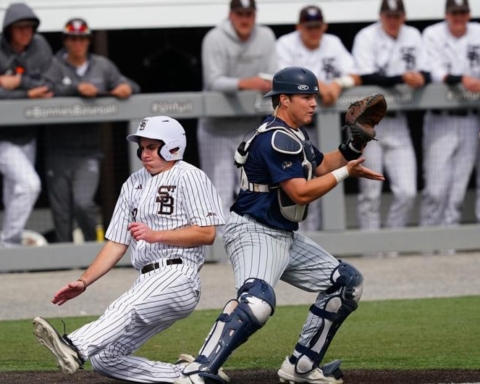By Harrison Leone
Assistant Sports Editor
Ladies and gentlemen, without further adieu, I am pleased to present to you the 2013 inductees to the National Baseball Hall of Fame and Museum: Nobody!…living, at least.
The Baseball Writers’ Association of America (BBWAA) foisted a travesty upon this country’s baseball fans when they did not deem a single player worthy for induction into the Hall. Among this year’s candidates were the all-time and single-season home-run king and a pitcher with a trophy case that would make Meryl Streep weep with envy.
Every summer, thousands of fans from across the nation descend upon Cooperstown, N.Y., the Mecca of baseball, to see the game’s greatest be enshrined. This year there will be no such treat, considering the only men being brought into the Hall, inducted as they were by the Veteran’s Committee, have all been dead since FDR’s administration.
The biggest shame of all is that this paltry selection had the potential to be the Hall’s greatest class since its inaugural class of 1936, which included indisputable greats such as Babe Ruth, Ty Cobb and Honus Wagner. The BBWAA wanted nothing to do, however, with the likes of such controversial players as Barry Bonds and Roger Clemens, both players with a laundry list of performance-enhancing drug (PED) accusations.
This past year was the first time on the ballot for both Clemens and Bonds, and neither came close to the 75 percent of the 569 votes needed for induction. Clemens garnered 37.6 percent of the vote — Bonds, slightly less at 36.2 percent.
Many voters excluded Bonds and Clemens from their ballots because of their alleged PED use, citing Rule 5 of the BBWAA Election Rules. According to the rule, voting shall be based on the player’s “record, playing ability, integrity, sportsmanship, character and contributions to the team(s) on which the player played.”
According to some, the use of PEDs automatically causes a player to fail the “integrity” test. Disregarding the nebulous and all-too subjective definition of integrity, the writers must realize the Hall is already home to a bevy of scoundrels, schemers and unscrupulous characters. Gaylord Perry is notorious for doctoring balls with Vaseline; Ty Cobb was alleged to have entered the stands to assault an amputee; Cap Anson was a vocal opponent of racial integration and fought to keep African-Americans out of the pros. While the mistakes of the past do not excuse those of the present, it is clear that throughout the Hall’s history, the integrity clause has not been given much weight.
By excluding Bonds and Clemens, regardless of their purported cheating, the writers are keeping two of the greatest players of their generation out of an institution which is supposed to chronicle baseball’s history.
Setting Clemens and Bonds aside, we turn to the curious case of Craig Biggio. Biggio, a lifetime Astro and fan favorite, was one of only two players to reach the 3,000 hit plateau without being inducted in his first year of eligibility; the other, Rafael Palmerio, lied to a Congressional committee about his PED use before failing a drug test in 2005. Biggio, on the other hand, played the game clean by all accounts, is the all-time Hit By Pitch leader and boasts 291 career home runs. That anyone could look at Biggio’s resume and not consider him a Hall of Famer calls into question the legitimacy of the entire voting process and should leave a bitter a taste in the mouths of baseball fans come July.








